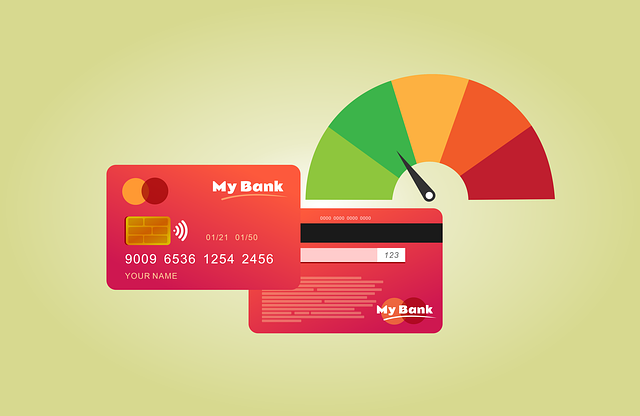How to Buy a House: A Step-by-Step
The Ultimate Guide to Buying Your Dream Home
Are you ready to embark on the exciting journey of purchasing your dream home? I’m here to be your trusted real estate agent through this exhilarating process step by step.

Becoming a homeowner is a significant milestone in life, and it’s within your reach. As your real estate agent, I’m thrilled to present this comprehensive guide, taking you on a journey from setting your homeownership goals to moving into the home of your dreams. Whether you’re a first-time buyer or in need of a refresher, I’m here to provide you with all the knowledge and support you need in buying a house.
Make sure you’re ready to buy a house
I’m here to help you avoid debt. I advise you to save 3-6 months of expenses for an emergency fund and a reserve fund for any needed repairs before buying. Think of this money as insurance for your life. When you buy a house, the landlords will be you! You must be able to pay for all repairs. Some repairs might come out of nowhere or be unavoidable.

Identifying Your Homeownership Goals
Before you dive into the home buying process, it’s crucial to understand why you want to buy a house. Are you tired of renting, looking to invest, or ready to settle down? Your motivations will drive your decisions throughout this journey.
Tip: Create a vision board or a list of your reasons for buying a house. This will help you stay focused on your goals.

What kind of home are you looking for?
List your must-haves and deal-breakers. Do you prefer a single-family home, condo, or townhouse? How many bedrooms and bathrooms do you need? Consider factors like the size of the yard, the layout, and any specific architectural features.
You are buying something that will probably the biggest purchase of your life, so this purchase must meet both your needs as well as your wants. Your lists should cover basic needs from the sizes and location to the small details including the kitchens equipped with durable appliances. Searching for properties is an excellent way to assess the price and availability of the properties that offer the features that you need.
Tip: Create a home wish list to organize your priorities and narrow down your options. As your realtor, I’ll use this list to find your ideal home.

Financial Preparation for Buying a House
Evaluate your debt-to-income ratio. Determine how much of your monthly income you can comfortably spend on a home without compromising your financial stability. Creating a budget is an essential step in the home-buying process. It helps you determine how much you can afford without straining your finances. Your budget should take into account:
Monthly mortgage payment
Property taxes
Homeowners Insurance
Maintenance and repairs
Utility bills
Homeowners association fees (if applicable)
Don’t forget to factor in a little extra savings for the home inspection, appraisal, and closing costs.
Tip: Use online budgeting tools to calculate how much home you can afford based on your debt-to-income ratio and expenses. And remember, I’m here to guide you through this financial preparation process.

Most homebuyers aim to put down at least 20% of the home’s purchase price as a down payment.
This down payment reduces the amount you need to borrow, lowers your monthly mortgage payments, and may even eliminate the need for private mortgage insurance (PMI). Some lenders provide loans with PMI with a lower down payment and expect higher rates.
However, there are numerous government programs from the Federal Housing Administration (FHA) to assist buyers. Some even being able to avoid the initial down payment. There is the popular FHA loan, Conventional loan, and Veterans Affairs (VA) loan to name a few highly effective ones.
Tip: Set up a separate savings account specifically for your down payment. This will help you track your progress and prevent spending the money on other expenses. I can connect you with trusted lenders who can offer advice on down payment assistance programs.

Your credit score plays a significant role in your ability to secure a mortgage loan and the interest rate you’ll receive.
Lenders use your credit history to assess your creditworthiness. Making sure all or most of your debt payments are paid off either in full or in a monthly payment plan is a necessity to get low interest rates for your home. Doing this also helps in not paying the credit cards ridiculous interest rate. I can recommend credit experts who can help you understand your credit report, dispute any inaccuracies, and improve your credit score if necessary.
Tip: Obtain a free credit report from all three major credit bureaus (Equifax, Experian, and TransUnion) to review your credit history. Dispute any errors you find.

Getting pre-qualified or pre-approved for a mortgage is crucial in the home buying process.
Here’s the difference:
Pre-qualification: This is an informal estimate of how much house you can afford. It doesn’t require a deep dive into your financial details and is often done online or over the phone.
Pre-approval: A pre-approval is a more robust commitment from the lender. To get pre-approved, you’ll need to provide detailed financial documentation, including pay stubs, bank statements, and tax returns. The lender will conduct a credit check and issue a letter indicating the amount you’re pre-approved to borrow.
Tip: Consider getting pre-approved as it strengthens your offer when competing with other buyers. I can introduce you to trusted mortgage experts who can make this process seamless.

Finding the Perfect Location
Choosing the right neighborhood is a critical decision in your home-buying journey. Consider these factors when evaluating potential neighborhoods:
Proximity to Work: How far is the commute to your workplace? Consider traffic patterns and public transportation options.
Schools: If you have children or plan to, research the quality of local schools.
Amenities: What amenities are available nearby? Think about grocery stores, parks, gyms, and recreational facilities.
Safety: Research crime rates and talk to residents about safety in the area.
Tip: Take the time to visit neighborhoods at different times of the day and week to get a sense of what life there is really like. As your realtor, I can provide valuable insights into the neighborhoods that match your preferences.

Understanding the real estate market can help you make informed decisions.
Familiarize yourself with market trends to gain insight into pricing, demand, and supply. Consider:
Market Cycles: Real estate markets can be in various cycles, such as buyer’s markets, seller’s markets, or balanced markets. Each cycle has its dynamics and can impact your buying strategy.
Future Development: Investigate any planned developments in the area. Upcoming infrastructure projects or new businesses can influence property values.
Price Trends: Research how home prices have changed over the past few years in your desired location.
Tip: Work closely with knowledgeable real estate agents who can provide you with valuable insights into the local market. I’m here to guide you through the ever-changing market dynamics.

The Role of Real Estate Professionals
The right real estate agent is a valuable ally in your home-buying journey. They can assist you in various ways:
Property Search: Your agent will help you find homes that meet your criteria, even those not listed online.
Negotiation: Real Estate Agents are skilled negotiators, and they can help you secure the best purchase price possible.
Paperwork: They’ll handle the paperwork, ensuring that all documents are correctly completed and submitted on time.
Tip: Choose a real estate agent with a strong track record in your desired area, as they will be more familiar with local market conditions. I’m here to be your advocate throughout the process.

Mortgage brokers and lenders play a critical role in helping you secure financing for your home purchase.
Here’s what they do:
Mortgage Brokers: These professionals act as intermediaries between borrowers and lenders, helping you find the best mortgage payment and rates.
Mortgage Lender: Lenders are financial institutions or banks that help with the real estate transaction to provide you with the loan estimate funds to buy your home.
Tip: Shop around for mortgage brokers and lenders to find the best terms and rates that suit your financial situation. I can introduce you to trusted mortgage experts who can help you explore your financing options.

The Art of House-Hunting
House-hunting can be overwhelming, especially when you’re viewing multiple properties. Create a checklist that outlines your criteria for your ideal home. This could include:
Number of bedrooms and bathrooms
Square footage
Yard size
Kitchen Layout
Parking space
Walkability
Closet space
Having a well-defined checklist makes the house-hunting process smoother and more efficient. As your realtor, I’ll work closely with you to ensure we find a home that checks all your boxes.

Making an Offer and Closing the Deal
Once you’ve found your dream home, it’s time to make an offer and work towards closing the deal. Here are the key steps:
Prepare a strong offer: With your realtor’s guidance, you’ll put together an offer that includes the purchase price, terms, and contingencies to submit to the seller’s agent. Your offer will be presented to the seller, and negotiations may follow.
Home inspection: After your offer is accepted, you’ll typically have a home inspection. This is a crucial step to ensure the property is in good condition. Any issues found during the inspection can be addressed with the seller’s agent.
Appraisal: The appraisal process involves assessing a property’s value by a licensed appraiser. They inspect the property, analyze local market data, and create a detailed report with the estimated value. The appraisal report is crucial for mortgage approval, and any discrepancies may lead to negotiations. It helps ensure the property’s value aligns with the home price and determines the loan-to-value ratio for mortgage terms and rates.
Finalize financing: Work closely with your lender to secure the mortgage and get your purchase loans submitted and/or earnest money deposit in as you get closer to your closing date. Ensure all required documents are turned in promptly. As well as all closing costs, earnest money, and down payment amount (if applicable) are paid.
Closing day: On the closing date, all parties involved will meet with the title company to sign the necessary paperwork, and you’ll become the proud owner of your new home.
Tip: It is VERY important not to touch your credit line and risk your higher credit score in the time period of your closing window unless you are willing to pay upfront the full amount of the home.

Moving In and Enjoying Your New Home
After the closing, you’ll receive the keys to your new home. It’s an exciting moment, and you can finally start settling into your home. Here are some essential post-purchase steps:
Utilities and services: Transfer or set up utilities, internet, cable, and any other services you need.
Home improvements: If necessary, plan any renovations or home improvement projects. Your realtor can recommend trusted contractors.
Home maintenance: Regular maintenance is key to preserving your investment. Create a maintenance schedule to keep your new home in top condition.
Meet your neighbors: Building good relationships with your neighbors can enhance your sense of community and security.
Tip: As your trusted realtor, I’m here to provide post-purchase support, whether you need recommendations for service providers or simply have questions about your new neighborhood.

Congratulations! You’ve successfully navigated the journey of buying the home of your dreams. It’s not just a transaction; it’s the start of a new chapter in your life. Homeownership brings security, comfort, and the joy of having a place to call your own.
I’m here to celebrate this momentous achievement with you. If you ever need assistance with real estate-related matters, whether buying, selling, or simply seeking advice, please don’t hesitate to reach out. Your future home is awaiting, and I’m here to support you every step of the way.
FAQ's
Q1: How to Buy a House?
A1: To buy a house, you must first determine your financial readiness, create a budget, and choose a trusted real estate agent who will guide you through the entire process. Setting your homeownership goals is key.
Q2: How do I determine my homeownership dreams?
A2: Determining your homeownership dreams involves assessing your motivations, whether you’re tired of renting, looking to invest, or ready to settle down. Creating a vision board or a list of reasons helps maintain focus on buying a home.
Q3: How do I set a budget for buying a house?
A3: To set a budget, calculate your monthly income and expenses, including mortgage payments, property taxes, home insurance, maintenance, and utility bills. Utilize online budgeting tools, and consider seeking guidance from a financial advisor or a realtor.
Q4: Why is a home wish list important?
A4: A home wish list outlines your priorities and helps narrow down your options. It includes details like the type of house, the number of bedrooms, and other features. Your realtor will use this list to find your ideal house, teaching you how to buy your dream house.
Q5: Is a 20% down payment necessary?
A5: While a 20% down payment is a common goal, it’s not mandatory. You can explore mortgage programs with lower down payment options. However, you should be cautious about choosing the right loan program. You might pay less for your down payment but end up paying more on your monthly interest rates. Each loan program is different but your realtor and a mortgage expert can assist in finding suitable options that would best fit your situation.
Q6: How to improve my credit score for better mortgage rates?
A6: A part of getting better mortgage rates is improving your credit score by obtaining a free credit report from all three major credit bureaus and disputing inaccuracies. Pay bills in full or at least in a monthly payment plan as long as it is ALWAYS on time, reduce outstanding debt, and avoid opening new lines of credit. By doing this you also avoid paying the overcharged interest rate from credit card companies, so it’s a win-win!
Q7: What is the difference between pre-qualification and pre-approval for a mortgage?
A7: The difference lies in the level of commitment from the lender. Pre-qualification is an informal estimate, often done online or over the phone. Pre-approval requires detailed financial documentation, credit checks, and a commitment letter, strengthening your offer in competitive situations for buying a house.
Q8: How to choose the right neighborhood for my new house?
A8: Selecting the right neighborhood involves considering proximity to work, school quality, available amenities, and safety. Your realtor can provide insights into neighborhoods that align with your preferences and guide you.
Q9: How can I understand the real estate market in my desired location?
A9: To understand the real estate market, research market cycles, future developments, and price trends. Collaborate with an experienced real estate agent who can provide valuable insights into the local market and help educate you on one of your life’s biggest purchases.
Q10: Do I need a real estate agent in the home buying process?
A10: A real estate agent is a valuable asset in your home-buying journey. They assist in property search, negotiation, market interest rate, and handling paperwork. A skilled realtor provides insights and helps secure the best possible deal.
Q11: How to choose a mortgage broker or lender?
A11: To select a mortgage broker or lender, shop around for the best terms and rates that match your financial situation. Your realtor can introduce you to trusted mortgage experts who can help you explore financing options, providing you with more insights on who to trust.
Q12: What is the role of a real estate attorney in the home buying process?
A12: A real estate attorney ensures that all legal aspects are handled correctly. They review contracts, offer legal advice, and assist in title searches, ensuring a smooth and legally sound process, and contributing to your knowledge to buy a house.
Q13: What should I consider during the home inspection?
A13: During a home inspection, focus on evaluating the property’s condition and identifying issues needing repair or renovation. Your realtor can recommend qualified home inspectors, guiding you on how to choose the right home.
Q14: What happens on the closing day of a home purchase?
A14: On closing day, all parties involved sign the necessary paperwork, and you become the proud owner of your new house. It’s a celebratory moment, and your realtor and attorney ensure all legal aspects are handled correctly.
Q15: How to ensure a smooth transition after buying a house?
A15: After closing, you’ll need to set up utilities, plan home improvements, schedule regular maintenance, and connect with your new neighbors. Your realtor can provide recommendations and support throughout this transition.
Q16: What should I do if I have more questions during the home buying process?
A16: Feel free to reach out to your trusted realtor at any time. Your realtor is there to provide guidance, answer questions, and offer support, making the home buying journey as smooth and enjoyable as possible while educating you on how to buy a house.
Q17: What is a Private Mortgage Insurance (PMI)?
A17: Private Mortgage Insurance (PMI) is a type of insurance that is often required by lenders when a homebuyer makes a down payment of less than 20% of the home’s purchase price. PMI is designed to protect the lender in case the borrower defaults on the mortgage. It’s important to note that PMI does not provide any protection or benefit to the homeowner; rather, it’s a cost that the borrower must bear to facilitate a mortgage with a lower down payment.
Q18: Is homeowners insurance mandatory? Why do I need it?
A18: Homeowners insurance is not mandatory by law in Houston, Texas, or anywhere in the United States. However, while it’s not a legal requirement, homeowners insurance is highly advisable for several reasons:
-
Protection Against Loss: Homeowners insurance provides financial protection in case of damage or loss to your home due to events like fires, storms, or theft. Without insurance, you would be solely responsible for covering repair or replacement costs.
-
Mortgage Lender Requirement: If you have a mortgage, your lender will likely require you to have insurance as a condition of the loan. This is to protect their investment in your home.
-
Liability Coverage: Homeowners insurance typically includes liability coverage, which can protect you in case someone is injured on your property. Without it, you could be personally liable for medical expenses and legal costs.
-
Peace of Mind: Having insurance provides peace of mind knowing that you have financial protection in case of unexpected events. It can help you recover from losses and rebuild your life after a disaster.
Q19: What is a Federal Housing Administration Loan (FHA)?
A19:
-
Insured by: The Federal Housing Administration (FHA), which is part of the U.S. Department of Housing and Urban Development (HUD).
-
Purpose: FHA loans are designed to make homeownership more accessible, especially for first-time buyers and those with lower credit scores. They require a smaller down payment and have more flexible qualification criteria.
-
Down Payment: Typically, a lower down payment requirement, often as low as 3.5% of the home’s final price.
-
Credit Score: More lenient credit score requirements, making it easier for individuals with lower credit scores to qualify.
-
Mortgage Insurance: FHA loans require both an upfront mortgage insurance premium (MIP) and annual mortgage insurance premiums, even if you make a substantial down payment.
Q20: What is a U.S. Department of Veterans Affairs Loan (VA Loan)?
A20:
-
Insured by: The U.S. Department of Veterans Affairs.
-
Purpose: VA loans are available to eligible veterans, active-duty service members, and certain members of the National Guard and Reserves. They aim to provide affordable home financing options for those who have served in the military.
-
Down Payment: Generally, no down payment is required for a VA loan.
-
Credit Score: VA loans often have more lenient credit requirements, but lenders may still have their standards.
-
Mortgage Insurance: VA loans typically do not require PMI insurance or mortgage insurance premiums.
Q21: What is a Conventional Loan:
A21:
-
Insured by: Conventional loans are not government-backed; they are funded and insured by private lenders.
-
Purpose: Conventional loans are available to a wide range of borrowers and can be used for various types of real estate transactions, including purchasing a home, refinancing, or investing in real estate.
-
Down Payment: The down payment requirement varies but is often higher than that of FHA loans. It can range from 3% to 20% or more.
-
Credit Score: Conventional loans typically have stricter credit score requirements, and borrowers with higher credit scores often receive better terms.
-
Mortgage Insurance: PMI Insurance may be required if your down payment is less than 20% of the home’s price.
Q22: What is a good credit score to buy a house?
A22: Certain mortgages have a minimum credit rating requirement. A conventional loan requires a minimum credit score of at or above 620, however, the perfect score is 740 or above. This can allow you to put down less on your down payment, have a lower interest rate on your monthly payment, and/or reduce the PMI costs.
Q23: What is “earnest money”?
A23: When the buyer wants to show they’re serious about buying a house they make an Earnest money deposit. It’s typically a percentage of the house’s price. You retrieve it from your funds. It’s put in a safe account until you need it for the down payment and closing costs when you buy the house. It’s a way to prove you’re committed to buying, and you can pay it with a check or a wire transfer, as specified in the agreement.
Q24: What will I be required to pay in closing costs?
A24: Closing costs are the various fees and expenses you’ll need to pay when you’re finalizing the purchase of a home. These costs can include things like fees for getting a loan, searching for the property’s title, appraising the home, and handling the escrow. There are also upfront payments for things like property taxes and homeowner insurance, as well as your down payment. These closing costs can vary, but a rough estimate is about 2% to 5% of the home’s price. It’s a good idea to talk to your real estate agent and lender to understand exactly what you’ll need to pay when you’re closing the deal on your new home.
Contact Us
Ready to take the big leap? Let us help you in your journey to homeownership.
Follow Us
- 8344 Spring Cypress Rd Suite B, Spring, TX 77379
- +1 832 526 9224
- luzjacquez@kw.com

